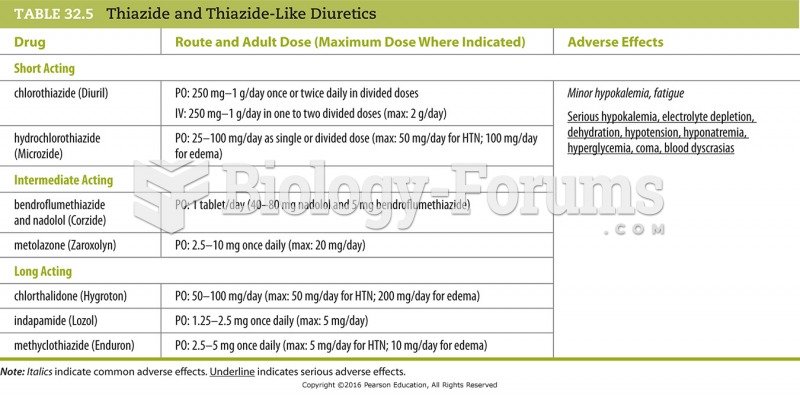This topic contains a solution. Click here to go to the answer
|
|
|
Did you know?
After 5 years of being diagnosed with rheumatoid arthritis, one every three patients will no longer be able to work.
Did you know?
The FDA recognizes 118 routes of administration.
Did you know?
There are 60,000 miles of blood vessels in every adult human.
Did you know?
Drugs are in development that may cure asthma and hay fever once and for all. They target leukotrienes, which are known to cause tightening of the air passages in the lungs and increase mucus productions in nasal passages.
Did you know?
Cytomegalovirus affects nearly the same amount of newborns every year as Down syndrome.







